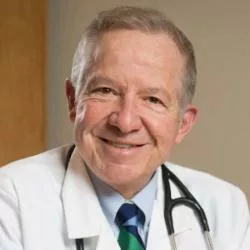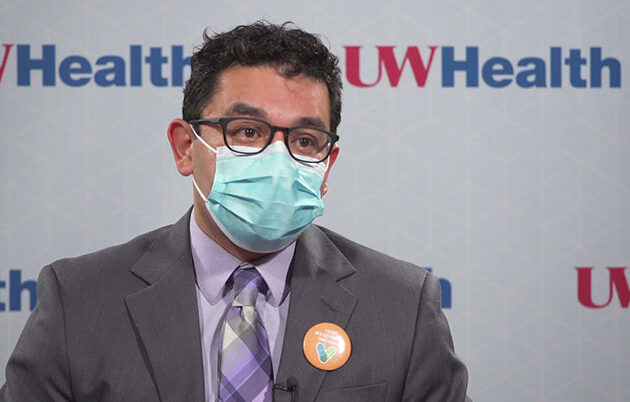Four UW–Madison faculty members receive the award each year. The recipients are selected for their distinguished contributions to the fields of the arts and humanities, social sciences, physical sciences, and biological sciences. UW–Madison Chancellor Rebecca Blank presented the award to Fiore and three other Hilldale Award recipients during a virtual ceremony on April 14.
“This award really is recognition of the work of UW-CTRI as a team,” Fiore said. “Together with Dr. Tim Baker, our staff, funders, and collaborators, we have helped hundreds of thousands of patients in their efforts to quit tobacco use, and I’m proud of what we have accomplished together—everyone at UW-CTRI shares this award.”
Fiore was nominated by Lynn M. Schnapp, MD, the chair of the Department of Medicine, and supported by Steve Schroeder, MD, Director of the Smoking Cessation Leadership Center at the University of California-San Francisco, and Howard Koh, MD, MPH, former United States Assistant Secretary of Health at the US Department of Health and Human Services (HHS) and current Harvard professor. They recognized Fiore’s many accomplishments, such as helping to institute tobacco use as a vital sign for every patient at every health care visit.
“Dr. Fiore’s body of work has included a programmatic series of scientific, clinical, and policy efforts to integrate evidence-based tobacco dependence treatment into health care,” Schnapp said in her nomination. “His educational efforts toward health care providers and the public have been embedded in each step. As a result, tens of millions of smokers have received evidence-based treatments and millions have successfully quit.”
Schroeder concurs with Schnapp and notes the qualities that make Fiore a great leader.
“Mike is a prodigious and highly disciplined worker,” he says. “Add to that a keen sense of moral purpose and dedication to improving the health of the public. Blend in deep humility and graciousness that make him such a sought-after collaborator and trusted advisor.”
Koh remembers first-hand the impact Fiore has had, offering hope to a field of treatment many had before deemed hopeless. In 2009, Koh was appointed by President Obama to serve as the 14th U.S. Assistant Secretary for Health and knew he wanted tobacco control to rank as the highest public health priority of the administration.
Koh says he knew just who to call. Fiore had previously advised HHS Secretaries Tommy Thompson and Donna Shalala and Koh asked him to return as a key advisor because of his academic leadership skills and ability to navigate the complex world of government and politics. Fiore had previously led the Subcommittee on Cessation for the HHS Interagency Committee on Smoking and Health. There he helped create recommendations that led to the 2005 establishment of the National Quitline Network (1-800-QUIT NOW). It now reaches 10 million smokers yearly.
“I was thrilled when he accepted my offer—his service was transformative,” Koh says. “During my tenure, he helped generate national direction and coordination of tobacco control efforts, shape the first ever Tobacco Control Strategic Action Plan for HHS, and implement new tobacco-related preventive services under the Affordable Care Act. We all felt fortunate to have the nation’s leading smoking-cessation expert guiding us every step of the way with the best evidence possible. Dr. Fiore embodies the highest commitment and achievement to teaching, research, and service.”
Fiore added how essential teamwork is to his successes and the accomplishments of the Center for Tobacco Research and Intervention.
“I would like to thank Drs. Schnapp, Schroeder, and Koh for their kind support and nomination, the Hilldale Award committee for their consideration, and each colleague who has worked with me for your important contributions to public health,” he said. “Each person we help to live longer, healthier, or happier makes it all worthwhile.”


